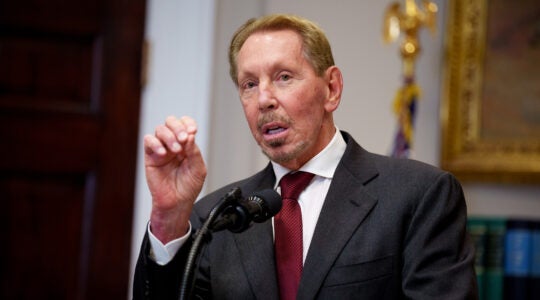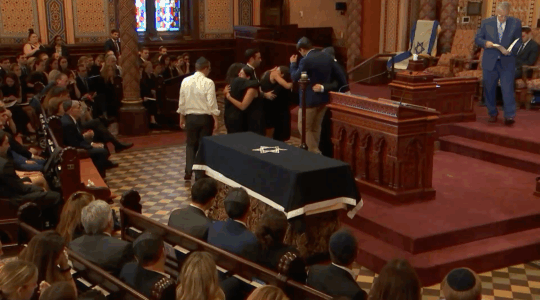[ED. NOTE: Click here for articles chronicling on Rabbi J.H. Hertz’s involvement in opposing calendar reform.]
For the past 80 years, millions of Jews have read the Chumash, the Five Books of Moses, through the eyes of Joseph Herman Hertz. His “Pentateuch and Haftorahs” became the standard edition for Orthodox and Conservative synagogues across Britain, the Commonwealth and North America. Each week, in congregations across the world, eyes dropped from the Hebrew text to the comments that Hertz had assembled. But Hertz was involved in a huge range of activities. As chief rabbi of the British Empire he had massive administrative responsibilities, and yet he continually took on new projects. At the very time he was bringing the Pentateuch to press he was leading the worldwide Jewish effort to oppose calendar reform.
[[READMORE]]
For most of the 1920s and 1930s, Hertz was chairman of the executive of the Jewish Committee on Calendar Reform. Every calendar has slight defects. The Julian Calendar had to be replaced with the Gregorian Calendar because its flaws became magnified over the centuries. But the Gregorian Calendar is also slightly inaccurate. To put it right, we insert a leap day every four years, and another day in a year divisible by 400.
These defects generated a range of solutions, and in 1923 the League of Nations took up the issue, considering a possible rectification which would have entailed making each year last 364 days. To account for leap years, every four years a blank day would have to be inserted, so that Monday would come not the day after, but two days after, Sunday. This idea was bad for the Jews because it would destroy the seven day weekly cycle, by which Shabbat fell on Saturday every week. Over the course of time, Shabbat would wander round the week, making it difficult for Jews maintain their observance. The proposal was backed by a great deal of money, including the Eastman Kodak Company, now bankrupt but then extremely successful.
Hertz was not deterred by the strength and wealth of the campaign. He mobilized world Jewish opinion to oppose the plan and ultimately he was successful. What were the qualities of Joseph Herman Hertz that impelled him to engage what he called “the battle for the Sabbath” and helped him to sabotage the plan?
Hertz possessed an uncommon variety of characteristics and connections that enabled him to organize the Jewish effort to defeat calendar reform. As chief rabbi he was uniquely placed to garner support from Jewish communities across the globe. The congregations under his personal authority in Britain and the Empire would naturally give him their backing, but even independent synagogues he wrote to would give his letter serious consideration. The Spanish and Portuguese Jews’ Congregation of London could generally be relied upon, but he also managed to obtain the support of the highly traditionalist Union of Orthodox Hebrew Congregations (Adath Yisroel) of London, which normally declined to cooperate with mainstream Orthodoxy. He even secured a small donation from the Union to cover the costs of pursuing the campaign.
Hertz’s voice was also heard in British non-Jewish society. The churches — whether Roman Catholic, Anglican or Nonconformist — listened to him and many came out against calendar reform at his urging. The British government and members of parliament gave the chief rabbi a hearing when he requested it, and took his representations seriously. Back in 1917, the government asked Hertz’s view before issuing the Balfour Declaration, which had his enthusiastic support. In the case of calendar reform too, the British political establishment did not want to act without first considering the chief rabbi’s view.
Hertz’s biography was essential to his ability to garner support across the Jewish world. He had many personal and scholarly connections in the United States. The Jewish Theological Seminary was his alma mater, and he recruited its president, Cyrus Adler, to the campaign. His rival for the chief rabbinate in 1913, Rabbi Dr. Moses Hyamson, was a professor of Jewish law at the seminary, and he led the American-Jewish campaign in conjunction with Hertz’s efforts. As a young man Hertz had been friendly with the leading Reform rabbi, Stephen S. Wise, who also lent his support to Hertz’s campaign. The Jewish response became not just the voice of an Orthodox faction, but cross-denominational. At the same time, Hertz’s own position as an Orthodox leader enabled him to secure the cooperation of the traditionalist leaders of central and eastern Europe, who regarded him as a colleague, if one of more progressive views.
Hertz’s position as chief rabbi also opened doors in the League of Nations itself. Not only was he invited to attend committee discussing on the question of calendar reform, he was one of the first observers to address it, and used the platform to make a powerful and shrewd anti-reform case. When another speaker claimed that Hertz was overstating Jewish opposition to calendar reform, Hertz did not immediately rise to deny the charge, calculating that such a response would ring hollow. He waited until a break in proceedings and placed incontrovertible evidence to the contrary in the hands of the speaker, who himself withdrew his suggestion. When Hertz was brutally attacked in print by a leading proponent of calendar reform he did not respond to the abuse, he simply republished the semi-hysterical accusations and let them speak for themselves.
Hertz was a man of tremendous energy. One of his admirers said that Hertz never relaxed, he merely moved from one task to another. He was only able to mobilize the potential of his position because he was prodigiously active. He was a keen observer of world events and so became aware of the calendar reform proposals early in their development. He prepared his extensive case for the League committee in the few days between festivals in the autumn of 1931. He understood the power of the well-crafted polemic and kept up an intense propaganda effort, writing and speaking assiduously against the proposals. He had endurance, and kept up the campaign until the proposals were finally dropped in 1937, making 14 years of effort on one campaign. Finally, Hertz was never afraid of a fight. The Rev. Ephraim Levine said of Hertz that he always sought to resolve a disagreement by peaceful means once all other avenues had been exhausted. This pugnacious spirit sometimes caused difficulties, but was exactly what was needed in the calendar reform campaign.
There is a saying among British government officials that a prime minister cannot be stopped, only slowed down, and eventually he will run out of steam of his own accord. That seems to have been the case with calendar reform. Hertz did not defeat the plan, but he caused sufficient fuss over a long enough period that it was dropped. He forced the calendar reform process to grind to a halt. It was a combination of position, character and connections that made Hertz one of the people best placed to achieve this, and win the “battle for the Sabbath.”
Dr. Benjamin J. Elton recently worked in the civil service of the British government. The author of Britain’s Chief Rabbis and the Religious Character of Anglo-Jewry 1880-1970 (Manchester University Press 2009), he is currently a visiting scholar in the Hebrew and Judaic Studies Department at New York University.
JTA has documented Jewish history in real-time for over a century. Keep our journalism strong by joining us in supporting independent, award-winning reporting.





